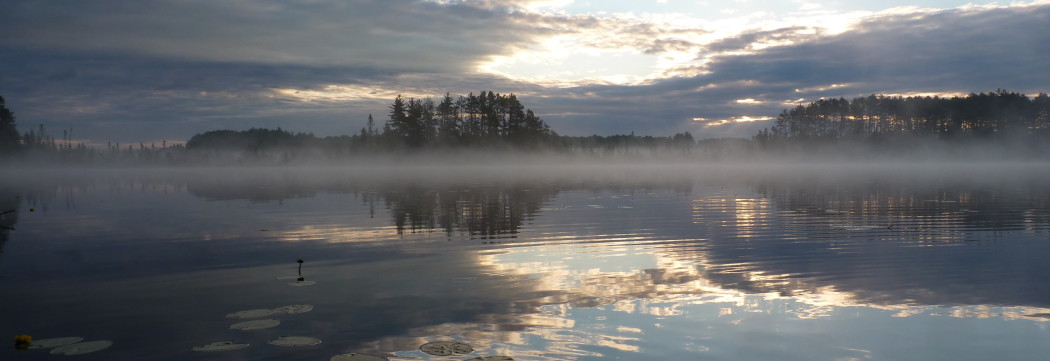 Back in May, as the five seekers were preparing to begin their 11-month journey living in the wilds, the wilderness guides made a suggestion for them to leave behind their names.
Back in May, as the five seekers were preparing to begin their 11-month journey living in the wilds, the wilderness guides made a suggestion for them to leave behind their names.
From the time we are born, we are trained and expected to live according to a certain set of cultural and familial guidelines. Some of these are helpful and others stifling. Most of us have taken on expectations which have distanced us from our true nature. The question asked by many who are on the path of self discovery is “who am I apart from who I was told to be?”
The Wilderness Guide Program offers a unique set of circumstances to aid those who are on the path of finding self. For this year’s group, the seekers had never met each other in person and they all came together on equal terms. No one was a supervisor, an elder, a former professor, a best friend, an ex lover, or a family member. There were no predetermined or prescribed roles or expectations for them to fill. They are simply five individuals who need one another in order to successfully live in the wilds. Without being told what roles they are to carry, they have the incredible opportunity to learn more about who they are and what gifts they have to offer the Circle.
The seekers agreed to let go of their names. Because they needed to call each other something, they decided that the group would come together and choose a name for each, one that reflected how the group saw them.
When they first began, their names were chosen based on physical or other obvious characteristics. These names were: Braided Woman, Young One, Nut Cracker, Tall One, and Medicine Woman. Since then, their names have changed a few times. Braided Woman became Brave Woman, Young One became Squirrel, Nut Cracker became Caretaker, and Tall One became Knowledge Keeper. Medicine Woman remained Medicine Woman.
Recently, they decided to change their names again. This time they chose names that affirmed how the group saw them and/or a positive trait she or he possess to encourage personal growth.
We asked them to share why each person’s name was chosen.
Squirrel is now Dancing Bear
The Circle: If Dancing Bear really wants something, then he really wants it, and if he doesn’t want to do something, then he won’t do it – we picture that a bear would do this. Also, when we walk through the woods, we were taught to walk lightly (Deerstepping), and to not walk on logs. But when Dancing Bear walks through the forest, he walks like a Bear – heavy footed, he steps on logs – and tries to break them. [Everyone laughs] We gave him the name Dancing Bear because he loves to dance, and as an encouragement to dance with life.
Caretaker remains Caretaker
The Circle: We initially gave the name Caretaker as a reminder to take care of himself – he cut himself earlier in the season. We thought he should keep his name because he sees what needs to be done and takes care of it. He fits the guardian role for the group. A Guardian is the caretaker for the clan. And he likes his name. Caretaker: It’s an honor.
Brave Woman is now Shining Dragon Fly
The Circle: We chose Shining Dragon Fly because Caretaker saw her at the Lake one sun when she was really frustrated. She was dealing with a recurring issue that was going to prevent her from swimming and getting sun – and she really loves to swim and be out in the sunshine. She was angry. Then, in the middle of it – a dragonfly landed on her hand and she just stopped being angry and noticed its beauty. We see this as a strength and we’d like to encourage her in this. Shining Dragon Fly says she feels good when she hears it.
Medicine Woman is now One Who Receives the Love of the Berries (Berry Love for short)
The Circle: We see that Berry Love is learning to receive. When she receives from plants and nature, she is so grateful and so connected with them. When she picks a lot of berries, she can feel them so strongly, and she is so thankful for what they give. In this moment, she can feel the shining happiness and oneness.
Keeper of the Knowledge is now Joyful Pond Lilly
The Circle: Caretaker says he recommended this name because she is special like a Pond Lilly, really awake. This yellow flower pops out of its surroundings. She sees the beauty in all things and is joyful. This flower has strong roots. When you want to have a discussion with Joyful Pond Lilly, she is strong and grounded.
Stay tuned for more stories and adventures!









